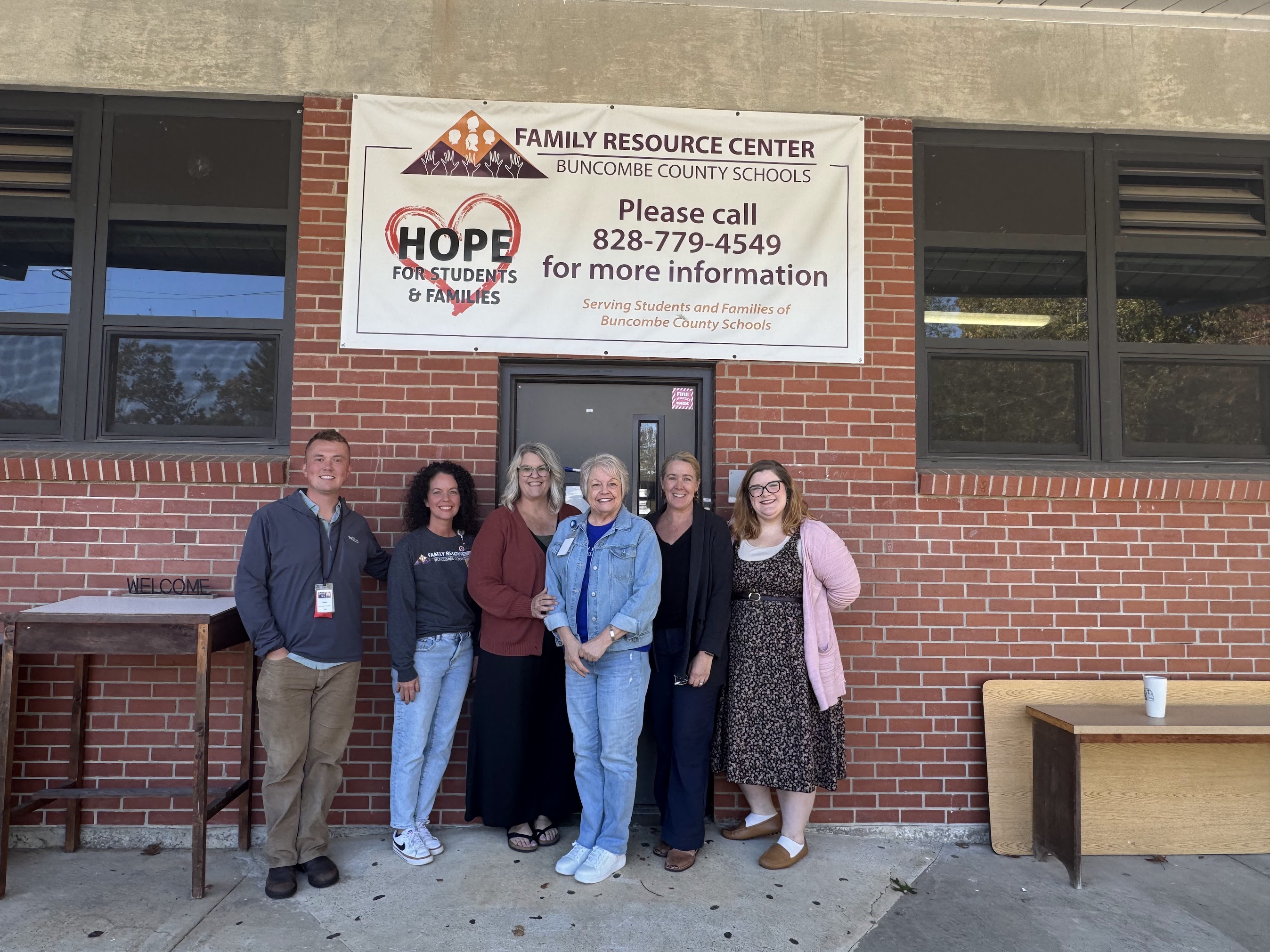
Showcasing Community Schools to NC Department of Education
Earlier this month, United Way of Asheville and Buncombe County (UWABC) had the honor of hosting representatives from the North Carolina Department of Education to showcase the impact of our Community Schools. The visit underscores the state’s growing recognition of the Community School strategy and its potential to be scaled across North Carolina.
The NC Healthy Schools team toured four of our Community Schools—Enka Intermediate, Enka Middle, Asheville Middle, and Owen Middle—and saw firsthand how our schools integrate resource rooms, school-based health clinics, after-school programs, and mentoring partnerships to support students and families.

Susanne Schmal, DPI School Health Partnerships and Policy Consultant, shared:
“Again, thank you so much to all of you and the school teams – we learned a lot and met many amazing people making a difference in our communities. Thank you for the work you do day-in and day-out.”
UWABC has championed Community Schools for over a decade, beginning with Enka Middle, the oldest Community School in the state. Today, we support nine Community Schools across Asheville and Buncombe County, each with a full-time Community School Coordinator employed by UWABC. Each school tailors its approach based on community-identified needs and assets, following the four pillars of the Community School model: Integrated Student Supports, Expanded Learning Time and Opportunities, Active Family and Community Engagement, and Collaborative Leadership and Practice.
Community Schools are explicitly highlighted in the NC Department of Public Instruction’s 5-year strategic plan. The plan calls to:
- Increase the number of Community Schools across the state.
- Increase the number of school-based health centers.
- Increase the percentage of schools adopted by community organizations or individuals.
"Advocate for and support the allocation of resources to Community School models or other evidence-based approaches districts can adopt to address out-of-school barriers to learning."
The impact of this work is clear: high school graduates are three times less likely to live in poverty, six times less likely to be incarcerated, and live an average of nine years longer. It matters to our state, and it matters to us. UWABC is proud to be a local leader, demonstrating that investing in students, families, and communities transforms lives. We remain committed to this work, sharing our expertise so that more schools across North Carolina can implement these evidence-based practices and achieve lasting change.
 Want to get involved with our Community Schools?
Want to get involved with our Community Schools?
- Our schools are always looking for helping hands: Volunteer at a Community Night Here!
- Help to sustain this work: Fund our Community Schools.
- Stay informed: Sign up for the UWABC newsletter.
